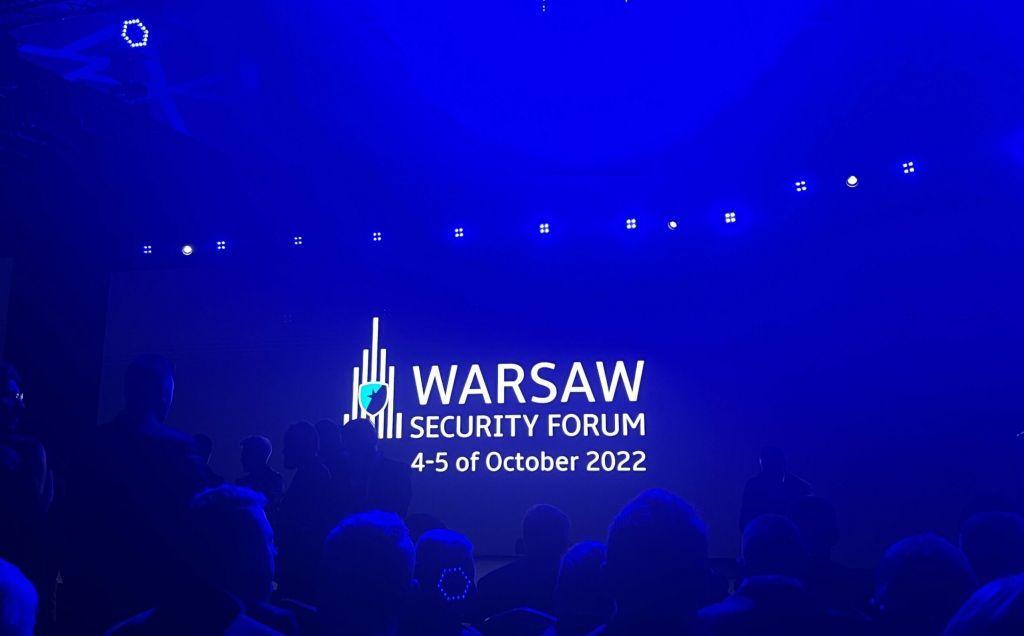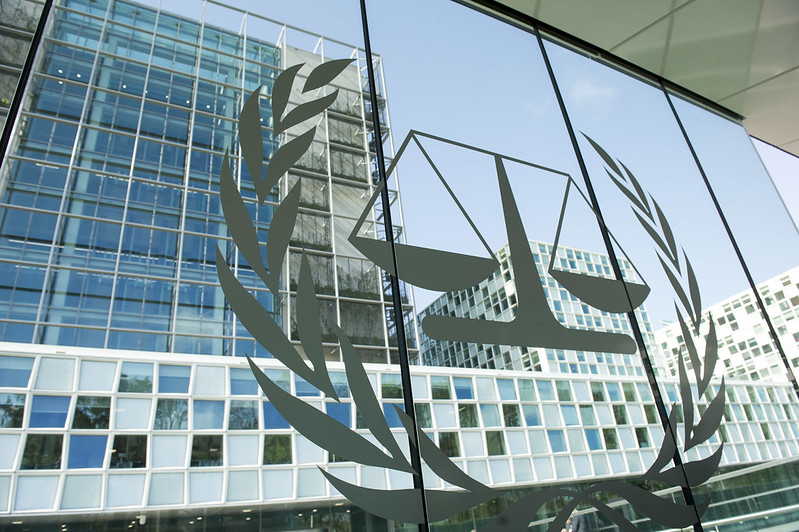From 3-5 October, ELAC Deputy Director and IPS Executive Director Federica D’Alessandra participated to the 2022 edition of the Warsaw Security Forum, one of the leading European security conferences dedicated to transatlantic cooperation, where she served as the Master of Ceremony for the Defence Track.
Organised since 2014, the Warsaw Security Forum gathers annually over 1,500 highest representatives of governments, international organizations, industry, think tanks and civil society coming from over 90 countries. The two-day program includes with on-stage high-level panel discussions, Chatham House rules-based round tables and dozens of bilateral meetings mixed with industry presentations and cultural programs of the guest country, all designed to address today’s most pressing current political and military issues.
During this year’s edition of the conference, Federica hosted a Q&A with United States General David Petraeus as a part of the New Security Leaders programme, co-hosted by the Warsaw Security Forum, the German Marshall Fund of the United States and the Casimir Pulaski Foundation. Federica and General Petraeus discussed topics such as the Russian annexation of occupied regions in Eastern Ukraine, the roll of intelligence in the war in Ukraine, the roll of paramilitaries deployed by Russia in Ukraine and the psychological dimension of conflict and its implications for battlefield performance, among others.
Federica also participated to a panel discussion on designating Russia a state sponsor of terrorism alongsideSteve Cohen,United States Congressman; Bartosz Grodecki, Deputy Minister of Poland; Pavel Havlicek,Research Fellow, Association for International Affairs; Daria Kaleniuk, Co-founder and Executive Director of the Anticorruption Action Centre (ACREC) of Ukraine; and Oleksandra Matviichuk, Head of the Board for the Center for Civil Liberties, 2022 WSF New Security Leader and 2022 Nobel peace laureate. Federica expressed the view that there is little evidence to suggest a designation would serve to achieve any of its stated goals in practice, including deterring aggression or the commission of atrocities by Russian forces in Ukraine, and that other policy tools with fewer potential negative implications might better serve the interests and needs of the Ukrainian people as a whole.
The full 2022 agenda is available here.




